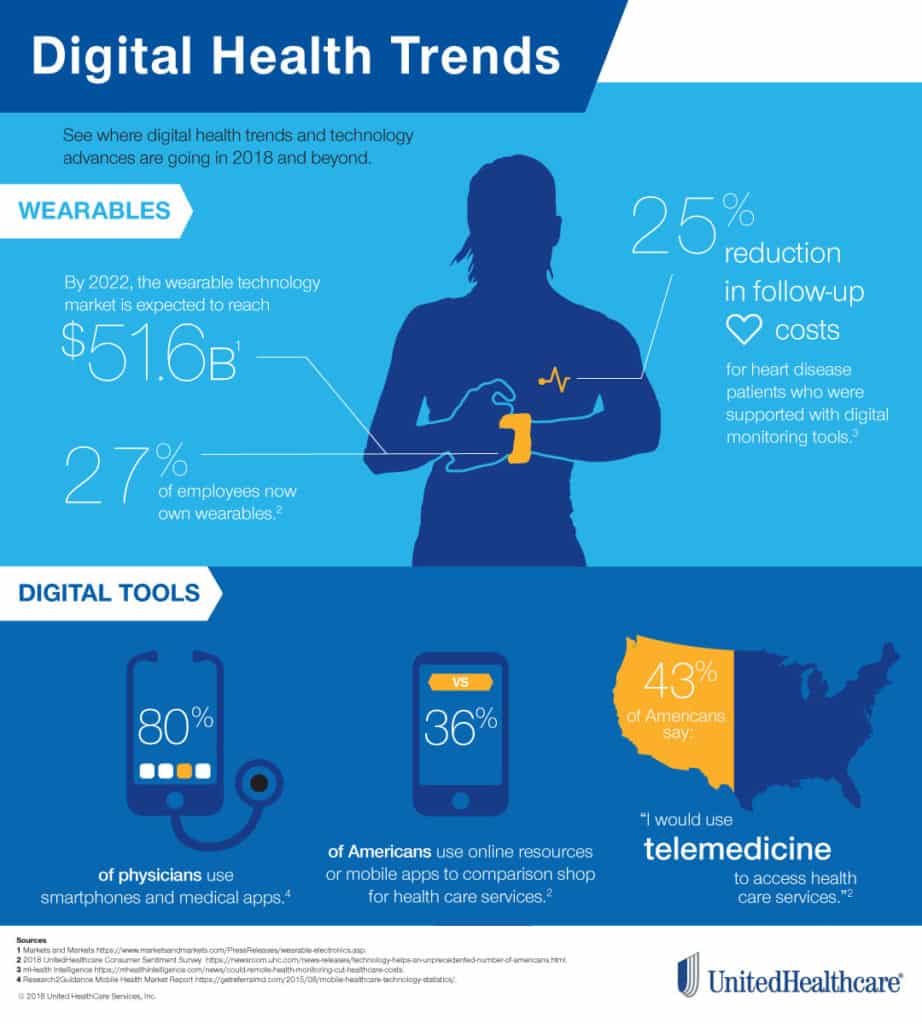 By Rebecca Madsen
By Rebecca Madsen
The promise of the digital health revolution is tantalizing: a multitude of connected devices sharing personalized feedback to help people improve their health. Yet, some recent studies have questioned the effectiveness of these resources.
While still evolving, many compelling use-cases are starting to emerge for digital health, including a set of best practices to help guide the maturation of this emerging field. Many people may soon gain access to an individual health record, a modern medical record that curates information from multiple sources, including electronic health records, pharmacies and medical claims to help support physicians in care delivery through data sharing and evidence-based guidelines.
As these advances become a reality, here are several digital health strategies that consumers, employers and health care innovators in New York should consider:
Micro-Behavior Change
Part of digital health’s power is the ability to provide people with actionable information about their health status and behavior patterns. Some of the most successful digital health programs are demonstrating an ability to encourage daily “micro-behavior change” that may contribute to improved health outcomes and lower costs over time. Wearable device walking programs can remind people to move consistently throughout the day, while offering objective metrics showcasing actual activity patterns and ideally reinforcing positive habits to support sustained change.
Technology that encourages seemingly small healthy habits each day can eventually translate to meaningful improvements. Some health care companies are even rewarding their customers for using technology to track their health. For example, UnitedHealthcare has a program called Motion that essentially enables customers to earn financial rewards to lower health care costs just by walking (and tracking that walk).
 Clinical Interventions
Clinical Interventions
Big data is a buzz word often associated with digital health, but the use of analytics and technology is only meaningful as part of a holistic approach to care. Through programs that incorporate clinical intervention and support by care providers, the true value of digital health can be unlocked to help make meaningful differences in people’s well-being. For instance, new programs are featuring connected asthma inhalers that use wirelessly enabled sensors to track adherence rates, including frequency and dosage, and relay that information to health care professionals. Armed with this tangible data, care providers can counsel patients more effectively on following recommended treatments. Rather than simply giving consumers the latest technologies and sending them along, these innovations can be most effective when integrated with a holistic care plan.
Real-Time Information
One key advantage of digital resources, such as apps or websites, is to provide real-time information both to consumers and health care professionals. This can help improve how physicians treat people, enabling for more customized recommendations based on personal health history and a patient’s specific health plan. New apps are enabling physicians to know which medications are covered by a person’s health plan and recommend lower-cost alternatives (if available) before the patient actually leaves the office. The ability to access and act on real-time information can be crucial in using technology to empower health care providers and patients.
Financial Incentives
While everyone wants to be healthy, sometimes people need a nudge to take that first step toward wellness. The use of financial incentives is helping to drive that engagement and is becoming more widespread by employers and health plans, with targeted and structured rewards proving most effective. From using mobile apps and comparison shopping for health care services to encouraging expectant women to use a website to follow recommended prenatal and post-partum appointments, financial incentives can range from nominal amounts (such as gift cards) to hundreds of dollars per year. Coupling digital health resources with financial rewards can be an important step in getting and keeping people engaged.
The digital health market will continue to grow, with some studies estimating that the industry will exceed $379 billion by 2024. To make the most of these resources, health care innovators will be well served to take note of these initial concepts.
 Rebecca Madsen is the chief consumer officer at UnitedHealthcare.
Rebecca Madsen is the chief consumer officer at UnitedHealthcare.


































